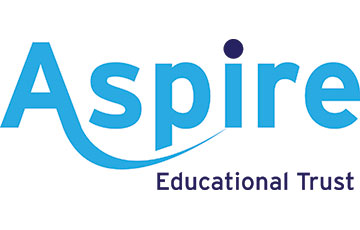Maths and SEND and EAL Learners
Maths and SEND
At Wilbraham Primary School we believe that all children are capable of learning maths but acknowledge that some children face significant barriers to their attainment and achievement. These barriers are wide and varied but once children begin to fall behind, it can be very difficult for them to catch up. Our lesson structure, curriculum organisation and ethos ensure that all children’s needs are met.
Teachers have high expectations of all pupils, including pupils with SEND, and do not compromise on the requirement for overlearning to ensure automaticity. We strongly believe that all children can achieve in mathematics. Any gaps in learning are identified in a timely manner using the DfE's non-statutory Maths Guidance: key stages 1 and 2, which sets out the essential 'ready to progress’ core criteria for each year group. Whenever possible, gaps are addressed through timely intervention to ensure children start each new unit of learning ‘lesson ready’. Early identification of gaps is a key component of our approach to ensure that where possible children ‘keep-up’ so ‘catch-up’ interventions are not required. Diagnostic assessment tools, such as the Sandwell Early Numeracy Assessment are also used to ascertain the next small steps for the small proportion of pupils progressing outside the age-related expectations of their year group.
Maths and EAL Learners
Although children with English as an additional language sometimes find it easier to learn Maths than other subjects (as symbols are often the same across languages), they still face significant barriers to their learning as acquisition of academic language can take considerably longer than social language.
We do not assume that they can’t do the maths.
Most common difficulties arise when faced with reasoning and problem solving, as these are typically presented as worded problems. The challenges they face are three-fold; at word level with technical, subject specific words and subject specialised words (e.g. words with dual meanings – whole, table, volume), at sentence level with unfamiliar sentence structures and at text level where problems are often presented as narrative in present tense.
Our approach to Maths at Wilbraham Primary School supports all EAL pupils in a variety of ways:
- Teachers are supported by the EAL team when planning maths. Through informal meetings, staff can offer advice around adaptations which can be made for specific learners. This might include making adaptations such as including pre-teaching, the use of pictures or around the development of language structures.
- Children are seated in carefully planned mixed attainment groups. Depending on individual needs, EAL pupils might be sat either with pupils who share the same home language, in groups with children who are good mathematical models or with pupils who are good language models to support their maths development.
- The lesson structure is designed so it supports EAL learners in a number of ways.
- Teachers allow children time to think before answering. Talk in groups allows children to rehearse feedback.
- Throughout the lesson there are opportunities for children in the early stages of English acquisition to listen to, and then to join in with, choral counting or choral reading of STEM sentences.
- In the 'Explore' part of the lesson, pupils tackle problems where they might not be familiar with all of the words and the teacher may model strategies specific to EAL learners, such as crossing out irrelevant information. They also practise common types of words problems together (e.g. altogether, how many more etc), developing understanding of maths specific sentence structures.
- Pupils are encouraged to use manipulatives; these provide opportunities to demonstrate reasoning and problem solving, whilst not necessarily having the words to describe or explain what they are doing.
- Pupils are encouraged to demonstrate and explain their reasoning using answers modelled by peers or support adults.
- Throughout the lesson, as a class, pupils will explore reasons for errors and misconceptions.
 Wilbraham Primary School
Wilbraham Primary School




